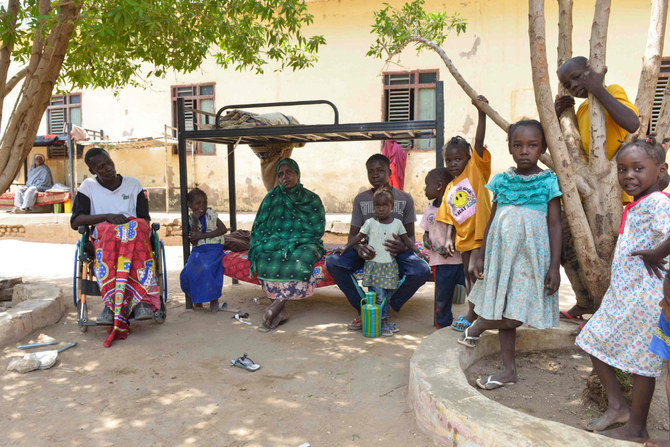WASHINGTON: The US assistant secretary of State for African affairs, Molly Phee, will travel to Addis Ababa on Monday and Tuesday to meet with African leaders and Sudanese civilian parties on how to end the conflict in Sudan, the State Department said on Sunday.
Diplomatic efforts to halt fighting between Sudan’s army and the paramilitary Rapid Support Forces (RSF) have so far proved ineffective, with competing initiatives creating confusion over how the warring parties might be brought to negotiate.
Egypt said on Sunday it would also host a summit of Sudan’s neighbors on July 13 to discuss ways to end the conflict.
Talks hosted in Jeddah and sponsored by the United States and Saudi Arabia were suspended last month, while a mediation attempt by East African countries was criticized by the army as it accused Kenya of bias.
Fighting persisted on Sunday between the army and the RSF in El Obeid, southwest of Khartoum, as well as in the south of the capital, residents said.
Khartoum International Airport said Sudan’s civil aviation authority has extended the closure of the troubled country’s airspace until July 31, with the exception of humanitarian aid and evacuation flights with permission from authorities.
In a statement, the US State Department said: “We call on the Sudanese Armed Forces (SAF) and the Rapid Support Forces (RSF) to immediately end the fighting and return to the barracks; adhere to their obligations under international humanitarian law and international human rights law; and allow unhindered humanitarian access to meet the emergency needs of civilians.”
During her travel, Phee will meet with Sudanese civilians and with senior representatives of governments in the region, the East African bloc Intergovernmental Authority on Development and the African Union Commission, according to the State Department.
Egypt’s presidency said the summit in Cairo on Thursday aims to “develop effective mechanisms” with neighboring states to settle the conflict peacefully, in coordination with other regional or international efforts.
Neither Egypt, seen as the Sudanese army’s most important foreign ally, nor the United Arab Emirates, which has had close ties to the RSF, have played a prominent public role in efforts to resolve the conflict in Sudan.
The two countries were also not involved in talks in Jeddah led by the US and Saudi Arabia that adjourned last month after failing to secure a lasting cease-fire.
Sudan’s two largest neighbors, Egypt and Ethiopia, have been at odds in recent years over the construction of a huge hydroelectric dam on Ethiopia’s Blue Nile, close to the border with Sudan.
Aside from the Addis Ababa talks, which will include Sudanese delegations as well as civilian parties that shared power with the army and RSF after the overthrow of former president Omar Al-Bashir four years ago, talks are expected in Chad between the leaders of former rebel groups from Darfur that signed a partial peace deal in 2020.
Air strike
The fighting that erupted on April 15 in Sudan’s capital Khartoum has driven more than 2.9 million people from their homes, including almost 700,000 who have fled to neighboring countries, many of which are struggling with poverty and the impact of internal conflict.
Over 255,000 have crossed into Egypt, according to latest figures from the International Organization for Migration.
On Saturday, Sudan’s health ministry said a strike by fighter jets in Omdurman, part of Sudan’s wider capital, left 22 people dead, an incident that drew condemnation from UN Secretary General Antonio Guterres.
On Sunday, the army denied responsibility for the strike, saying its air force had not hit targets in Omdurman the previous day and that the RSF had bombarded residential areas from the ground at times when fighter jets were in the sky before falsely accusing the army of causing civilian casualties.
The army has depended largely on air strikes and heavy artillery to try to push back RSF troops spread across Khartoum, Omdurman and Bahri, the three cities that make up the capital around the confluence of the Nile.
Violence has also flared in other parts of Sudan including the western region of Darfur, where residents say militias from Arab tribes along with the RSF have targeted civilians on the basis of their ethnicity, raising fears of a repeat of the mass atrocities seen in the region after 2003.






























